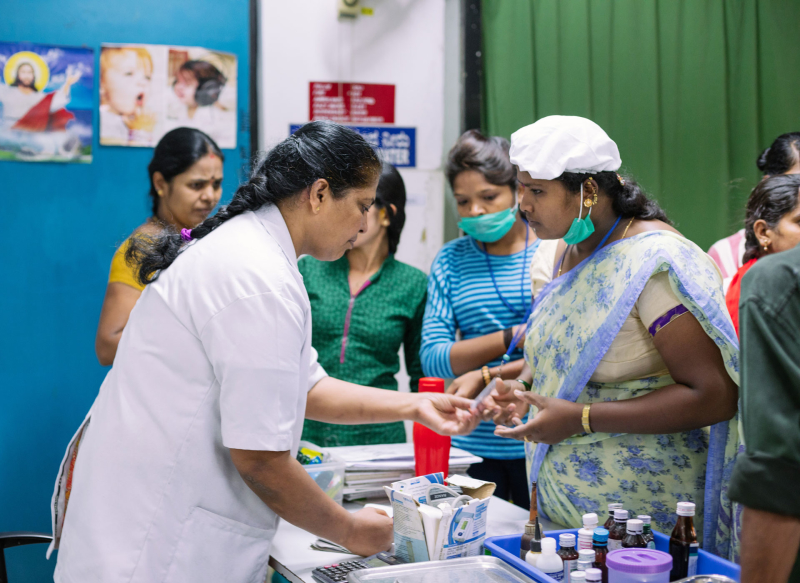FOCUS AREA
BUILDING HOLISTIC HEALTH
LOCATION
Rural Karnataka
REACH
19 factories, ~18000 women
PARTNERS
University of Michigan, Shahi Exports
STAGE
- DESIGN
- EVALUATE
- ANALYZE
- DISSEMINATE
- SCALE-UP
Fighting Anaemia in Garment Factories
CHALLENGES AND OPPORTUNITIES
According to the WHO, anemia caused the loss of 50 million years of healthy life in 2019. India is ranked as severely anemic in all demographic groups. More than 60% of Indian women (pregnant and non-pregnant) in the age group of 15-49 years were found to be anemic. This is despite the fact that iron supplements that can control the effects of the condition are available in the market. Our intervention focuses on uptake of iron supplementation among anemic women workers in the garment industry. It also aims to understand if treating iron deficiency improves workplace performance. Given scientific evidence on the positive effects of iron on various measures of health, we expect to see significant benefits in self-reported health and work productivity for workers who regularly adhere to supplementation.
RESEARCH QUESTION
Can we increase take-up of iron supplementation among anemic women in garment factories, through daily reminders and other encouragement designs like peer learning? Will this impact productivity rates?
RESEARCH DESIGN
In order to investigate whether learning (through the experience of peers) about the benefits of iron supplementation can increase adherence, we plan to implement a “peer feedback” treatment to a subset of women. This intervention encourages women to evaluate the health benefits they might see and informs them of any benefits their peers are experiencing. In addition, when it comes to self-administering long term medication, people are often forgetful which results in low adherence leading to lowered effectiveness. We also study the impact of receiving daily reminders (phone messages or in person reminders) on adherence to the intervention.
MEASURING OUTCOMES
- Haemoglobin levels
- Regular uptake of iron supplements
- Self reported health indicators
- Workplace performance
Image credits: Nayantara Parikh

